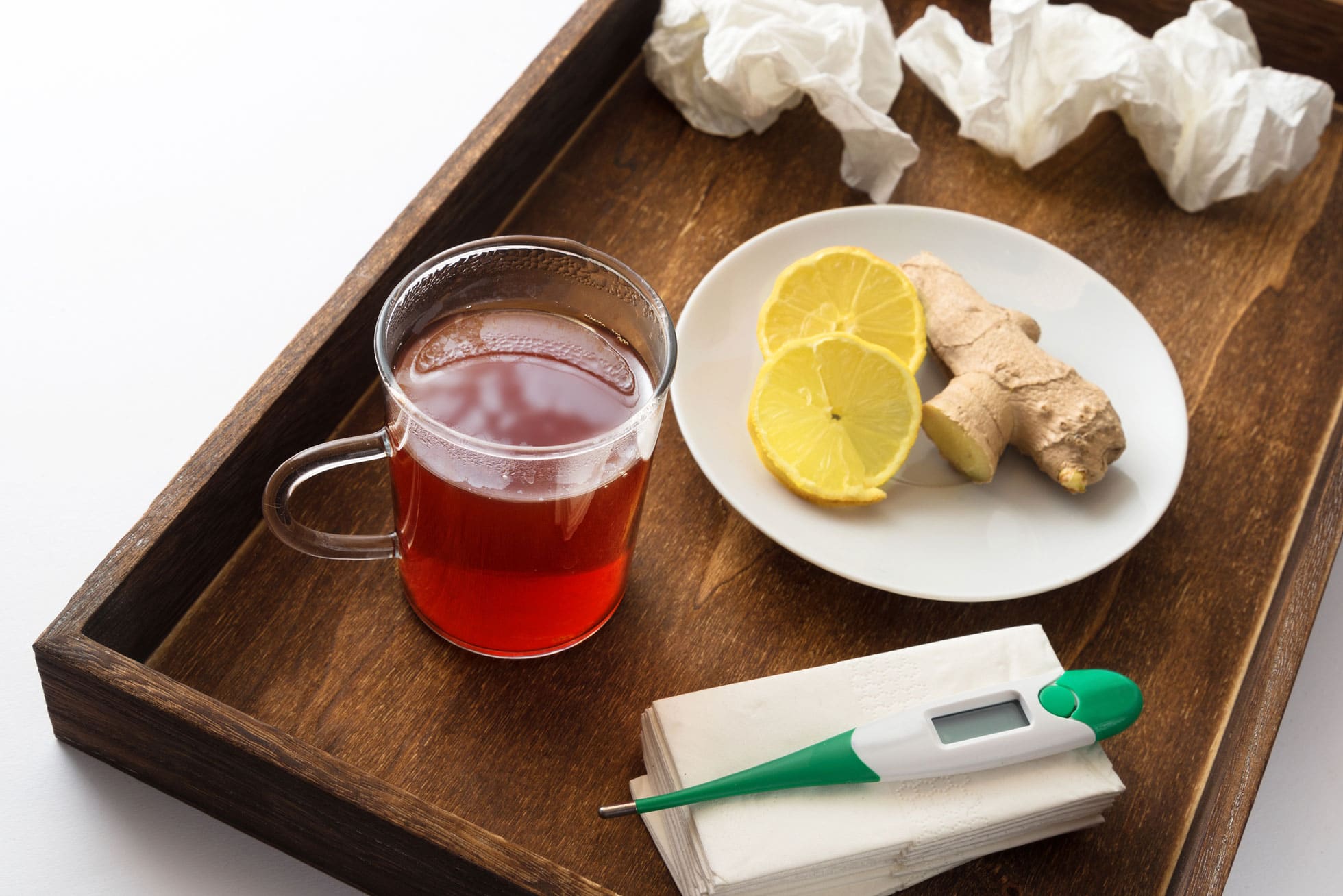Key Takeaways
- Consider Sleeping Separately: Sleeping in separate rooms can reduce the risk of catching an illness from a sick household member. Germs spread easily through coughing, sneezing, and breathing, so maintaining physical distance during sleep can lower your chances of getting sick.
- Focus on Air Quality: Good air circulation is crucial in preventing the spread of illness. Open windows to improve airflow and consider using air purifiers with HEPA filters to trap airborne germs. This helps dilute and remove potentially infectious particles from the air you breathe, reducing transmission risks.
- Practice Good Hygiene and Cleanliness: Regularly disinfect frequently touched surfaces such as doorknobs, light switches, and remote controls. Use disposable items where possible to minimize shared contact points. Encourage proper handwashing techniques and avoid sharing personal items like towels and utensils to further prevent the spread of germs.
When a family member or other loved one gets sick, you might wonder if you should sleep in the same room with them. This is a tricky question without a simple answer. Let’s look at some things to think about.
Germs can spread easily in a bedroom. Sick people cough, sneeze, and breathe out tiny droplets that carry germs. If you’re close by, you might catch their illness. Sleeping in separate rooms can lower this risk.
However, staying with a sick person has some benefits too. You can keep an eye on them and help if they need anything during the night. This can be really important for young kids or very sick adults. And if you share a small space like a studio apartment bedroom and have no other place to sleep, you can still take steps to keep yourself safe.
Sleep in Separate Rooms
When your partner gets sick, you might want to sleep in another room. Doctors say that many illnesses can spread while sharing a bed. Coughs, sneezes, and even normal breathing can pass germs to you as you sleep.
If you have space at home, use a different room until your partner gets better. This simple step can help keep you healthy. But if you live in a small apartment, sleeping apart might not be possible.
When you can’t sleep separately in a place like a studio bedroom, try these tips:
- Open windows for better air flow
- Sleep facing away from each other
- Have your partner cover their coughs
By taking these steps, you can lower your chances of getting sick while still supporting your partner. A little caution goes a long way in staying healthy when someone close to you is ill.
Boost Your Body’s Defenses with Quality Sleep
Sleep is vital for staying healthy when someone close to you is sick. As you sleep, your body produces more cytokines, proteins that combat inflammation and infection. Good sleep also boosts your T cells, Verified Source National Library of Medicine (NIH) World’s largest medical library, making biomedical data and information more accessible. View source key players in your immune system.
T cells are a type of white blood cell that plays a central role in your immune system’s ability to fight off infections. Quality sleep helps these T cells work more effectively, strengthening your body’s defense against illnesses.
Conversely, fighting germs takes a lot of energy. This explains why sick people often feel tired and sleep more. Getting enough rest helps your body recover and stay strong.
Aim for at least seven hours of sleep each night, as per CDC recommendations. Verified Source Centers for Disease Control and Prevention (CDC) The United States’ health protection agency that defends against dangers to health and safety. View source Extra sleep can further strengthen your immune system, so this is one time to give yourself permission to sleep in if you can.
Remember to take care of yourself as well while looking after a sick loved one.
Avoid Sharing Personal Items
When someone in your household is ill, switch to disposable items where possible. Replace cloth hand towels with paper towels in the bathroom and kitchen. Use paper cups instead of shared glasses. This reduces the risk of germs lingering on fabric or other surfaces.
It’s also crucial to avoid sharing personal items with the sick person. This includes towels, bedding, dishes, and utensils. The sick person should have their own designated items during their illness. Once they recover, wash all their used items thoroughly before returning them to general household use.
Use Separate Bedding
Illnesses can spread through more than air. Sick individuals can transfer germs to their sheets via sweat, saliva, and nasal drips while sleeping.
These germs can survive on bedding for days and infect others who touch them. To prevent this, wash sheets and pillowcases in hot, soapy water. This eliminates germs and stops their spread.
Using separate bedding and washing it frequently creates a barrier against illness. It’s a simple yet effective method to stay healthy when sharing space with a sick person.
Keep Your Bedroom Air Fresh
Opening windows can reduce the spread of illness in your home. This is particularly important for respiratory viruses like colds and flu, which spread through airborne droplets.
Increased airflow dilutes these germs, lowering the chance you’ll breathe them in. Health experts suggest opening as many windows and doors as you safely can. Even a slightly open window can make a difference.
If you have a bedroom air purifier, use it as well. Air purifiers with HEPA filters can capture small particles, including many viruses and bacteria, removing them from the air.
Unlike open windows, which might need to be closed due to weather or noise, air purifiers can run continuously. However, air purifiers work well in conjunction with open windows, helping to clean the incoming air as well as the existing indoor air.
Better air circulation decreases the risk of catching your partner’s illness. It’s a simple step with significant health benefits.
Clean Your Bedroom Regularly
Germs can survive on surfaces for extended periods, so regular bedroom cleaning is crucial. Disinfect areas your sick partner has touched. Pay attention to often-forgotten spots like doorknobs, remote controls, and toothbrush holders.
Clean tables, countertops, and other frequently used surfaces too. Since germs spread through touch, everyone should wash their hands often and thoroughly.
Consistent cleaning breaks the chain of infection. It’s an effective way to protect yourself and others in your household from illness.
Halt Bad Habits That Spread Germs
Certain everyday habits can increase your risk of catching an illness from a sick partner. Avoid touching your face, especially your eyes, nose, and mouth, as these are entry points for viruses. Break habits like nail-biting, rubbing your eyes, or putting objects (like pens) in your mouth.
These actions can transfer germs from contaminated surfaces directly into your body. Be mindful of these habits and try to consciously avoid them, especially when someone in your home is sick.
Stay Up-to-Date on Vaccines
One of the most effective ways to prevent illness is to stay current with your vaccinations. The Centers for Disease Control and Prevention (CDC) recommends annual flu shots annual flu shots Verified Source Centers for Disease Control and Prevention (CDC) The United States’ health protection agency that defends against dangers to health and safety. View source for everyone 6 months and older. For COVID-19, follow the latest guidelines for vaccines and boosters.
Being vaccinated not only protects you but also helps prevent the spread of illness to others in your household. Remember, it takes about two weeks after vaccination for your body to build protection, so it’s best to get vaccinated before the start of flu season or as soon as possible.
Tips to Avoid Getting Sick
Wash your hands often to keep germs away. Use soap and water for 20 seconds, or use hand sanitizer if you can’t wash. Keep your hands away from your face. Clean your house regularly. Wipe down surfaces like counters, doorknobs, and electronics with disinfectant. Germs can live on these for up to a day.
When someone’s sick at home, use paper towels instead of cloth ones. Give them their own room if possible, and limit who goes in. Boost your immune system by eating fruits and veggies. Get enough sleep and exercise. These habits help your body fight off illnesses.
Get your flu shot every year. It’s one of the best ways to stay healthy. Wear a mask when needed. This helps stop the spread of germs. Wear one if you’re caring for someone who’s sick or if you’re in a crowded place during flu season.
If you’re the one who’s sick, cough into your elbow, not your hands. Wash your hands often and try to stay away from others in your house.
Remember, these simple steps can make a big difference in staying healthy and preventing the spread of illness.
FAQs
Is it safe to sleep in the same room as someone who’s sick?
It’s generally safer to sleep in separate rooms if possible. Sick people can spread germs through coughing, sneezing, and even breathing.
If you must share a room, try to improve air circulation, sleep facing away from each other, and have the sick person cover their coughs.
How can I boost my immune system when someone in my house is sick?
Getting enough sleep is crucial for a strong immune system. Aim for at least seven hours per night, as sleep helps your body produce infection-fighting proteins.
Eating fruits and vegetables, exercising regularly, and managing stress can also help boost your immunity.
What’s the best way to clean my bedroom when someone is sick?
Regularly disinfect surfaces that are frequently touched, such as doorknobs, light switches, and remote controls. Pay special attention to the sick person’s area, including their bedding and personal items.
Wash your hands thoroughly after cleaning and use disposable cleaning materials and personal items (i.e. disposable tissues) when possible.
What should I do if I’m the one who’s sick?
If you’re sick, try to isolate yourself as much as possible. Cough or sneeze into your elbow, not your hands. Wash your hands frequently, especially after touching your face or using tissues.
Avoid close contact with others in your household, and if possible, use a separate bathroom and bedroom until you’re feeling better.
Should I avoid sharing items with a sick family member?
Yes, it’s best to avoid sharing personal items with someone who’s sick. Use separate dishes, towels, and bedding for the sick person. If you have children, make sure they don’t share toys with a sick sibling. After the illness passes, wash all items the sick person used thoroughly.
How important is hand washing in preventing illness spread?
Hand washing is one of the most effective ways to prevent the spread of illness. Wash your hands often with soap and water for at least 20 seconds, especially before eating and after being in contact with a sick person. If soap and water aren’t available, use a hand sanitizer with at least 60% alcohol.
Can opening windows really help prevent the spread of illness?
Yes, opening windows can help reduce the spread of illness, especially for respiratory viruses. Increased airflow helps dilute airborne germs, making it less likely for others to breathe them in. Even cracking a window slightly can make a difference in improving air circulation and reducing the risk of illness spread.
Conclusion
Staying healthy when someone in your household is sick requires a combination of prevention strategies and common sense. If possible, sleep in separate rooms to reduce the risk of germ transmission.
When that’s not an option, focus on improving air circulation, maintaining cleanliness, and practicing good hygiene. Boost your immune system by getting enough sleep, eating a balanced diet, and staying active.
Remember to clean and disinfect frequently touched surfaces regularly, and avoid sharing personal items with the sick person. If you’re the one who’s ill, take steps to minimize the spread of germs to others in your home.
By following these guidelines and being mindful of your habits, you can significantly reduce the chances of illness spreading through your household, keeping yourself and your loved ones healthier.
About the author
Geoff McKinnen is a writer focusing mainly on the healthcare industry and has written articles on everything from foods to help you lose weight to the connection between Alzheimer’s and sleep. Geoff’s passionate about helping readers improve their well-being to lead happier lives. Outside of work, Geoff enjoys cycling and hiking and believes that by leading a healthy lifestyle, he can help others do the same.
View all posts





